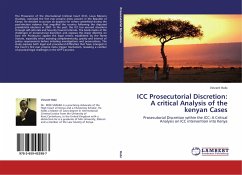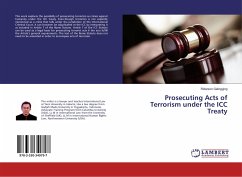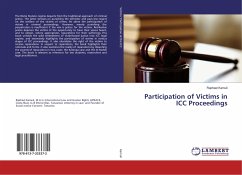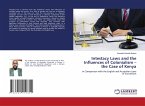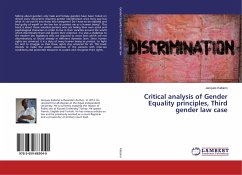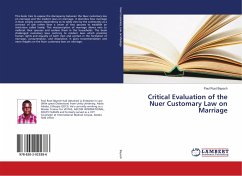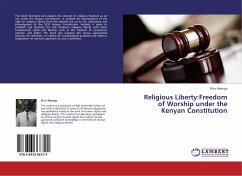The Prosecutor of the International Criminal Court (ICC), Louis Moreno Ocampo, exercised the first ever proprio motu powers in the Republic of Kenya. He decided to pursue six suspects for crimes committed during the post-election violence that engulfed the country following the disputed presidential elections in 2007. In the past, the ICC has secured situations through self-referrals and Security Council referrals. The books looks at the challenges of prosecutorial discretion and exposes the sharp dilemma on how the Prosecutor applies the legal criteria established by the Rome Statute, especially when assessing complementarity, gravity and interest of justice requirements before initiating investigations and prosecutions. The study exposes both legal and procedural difficulties that have emerged in the Court's first ever proprio motu trigger mechanism, revealing a number of practical legal challenges in the OTP's practice.
Bitte wählen Sie Ihr Anliegen aus.
Rechnungen
Retourenschein anfordern
Bestellstatus
Storno

